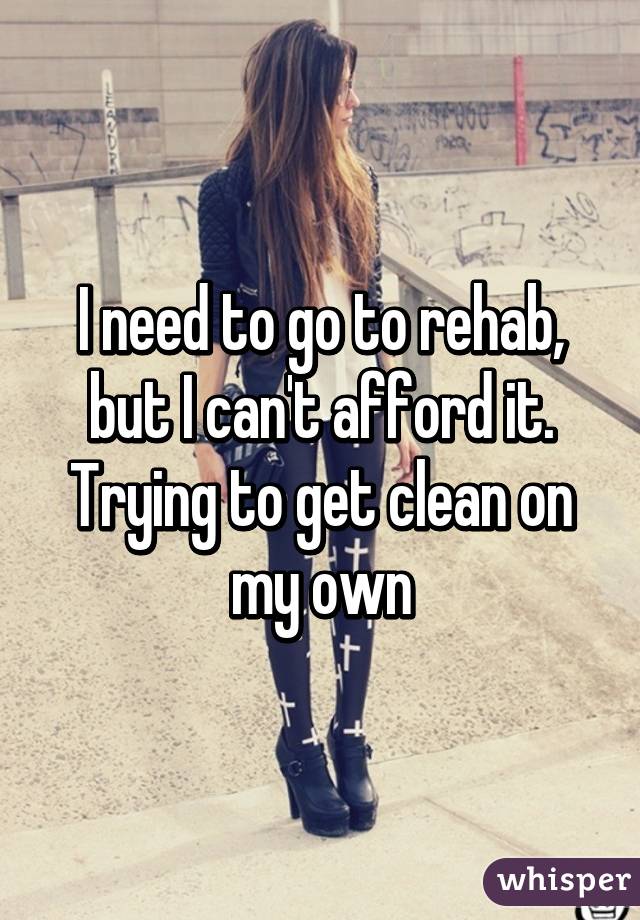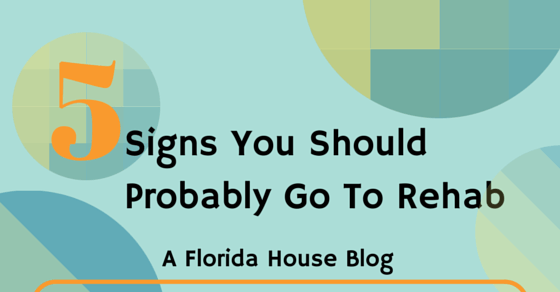 |
Can't afford rehab what to do.A lot of people need drug or alcohol rehab but cannot afford it.However if you find yourself in this situation,don't panic.One way to find free treatment programs is through the government; the Substance Abuse and Mental Health Services Administration (SAMHSA) provides a search tool that can find nearby treatment centers based on an individual’s address. Search options allow certain requirements to be
notated based on the individual’s requirements.What Is Included in Free Drug Rehab?
Depending on the provider and the sources of funding, free drug rehab can include anything from intensive inpatient care to simple outpatient medical maintenance.
State-funded programs are more likely to cover the full range of treatment options, though they may not have the most current technology or treatment methods available. However, many states can provide treatment that results in recovery and provides post-treatment support.
As discussed in part above, many of these rehab center options require that clients apply and are accepted to the programs based on certain qualifications. For free rehab, the main qualifying factor is usually a demonstrated inability to pay. Other qualifications may include residence in the state where treatment is provided, certain social qualifiers, such as being pregnant or a veteran, or being a member of the faith community that runs a faith-based rehab.
 |
There are priority populations in many state rehab centers. For example, through the Washington State Department of Social and Health Services, it is clearly stated that those who are considered to be priorities for state-funded treatment are:
- Pregnant women addicted to IV drugs
- Pregnant women with addictions in general
- Anyone else addicted to IV drugs
- Women with addictions within one year after giving birth
Because of this, if people are in one of these categories, they will be most likely to receive state-funded treatment services in the state of Washington.
If a person has insurance coverage, or demonstrates an ability to pay at least part of their treatment cost, free treatment programs may not be available to that person. If that’s the case, there are other ways to help cover the cost of rehab, even at private inpatient treatment centers.
 |
What to do if you can't afford rehab.If free treatment is not available, or if an individual doesn’t qualify for free programs or needs a treatment type that is different from those provided for free, there are other ways to obtain funding that may lower or defray the cost:
- Scholarships: Some organizations offer scholarships to help people on low incomes afford treatment. These scholarships are often offered through private treatment facilities or through organizations concerned with helping those who are struggling with addiction. It is always advisable to inquire about scholarships or grants available for low-income individuals when seeking a treatment center. In some cases, SAMHSA also provides grants for treatment that can be provided through the state or treatment center.
- Insurance: Many types of insurance cover the cost of addiction treatment and rehab; in particular, the Affordable Care Act requires that insurance policies issued under the state health exchanges and through Medicaid programs under the ACA expansion must provide coverage for addiction treatment. It’s important to note that insurance coverage often still requires that the individual provide a co-insurance payment, and some require a deductible be paid before treatment will be free. Specific plans may have different coverage levels, so it’s a good idea to check the specific policy or talk to the insurance provider.
- Loans: Many treatment centers provide financing, and
- there are even specialty loan companies specifically for the purpose of funding treatment for individuals. If an individual is able to pay back the amount after treatment, this course may be a way to pay until that reimbursement is possible.
- 12-Step programs and non-religious self-help and support groups: While these groups are not recommended as a sole treatment mode for addiction, they are a strong means of support for ongoing recovery during and after rehab. These groups are most often free, requiring no dues.
- Friends and family: The loved ones of those who are addicted to drugs or alcohol often want to help but aren’t always sure how to bring it up. It’s worth it to ask loved ones if they are willing to assist with the cost of treatment, even if one is embarrassed to do so. Perhaps it could be discussed as a loan that the individual can work to pay back over time. This may be a last resort for some, and even for those who ask, the answer may be no, but it’s a chance for loved ones to be involved and invested in recovery.
- When you can't afford rehab,it can be pretty disheartening,but i hope with the things listed here you find a way to make a way.Good luck in your quest for free drug or substance abuse rehab and the start of the first day of your new life.
- source
No comments:
Post a Comment